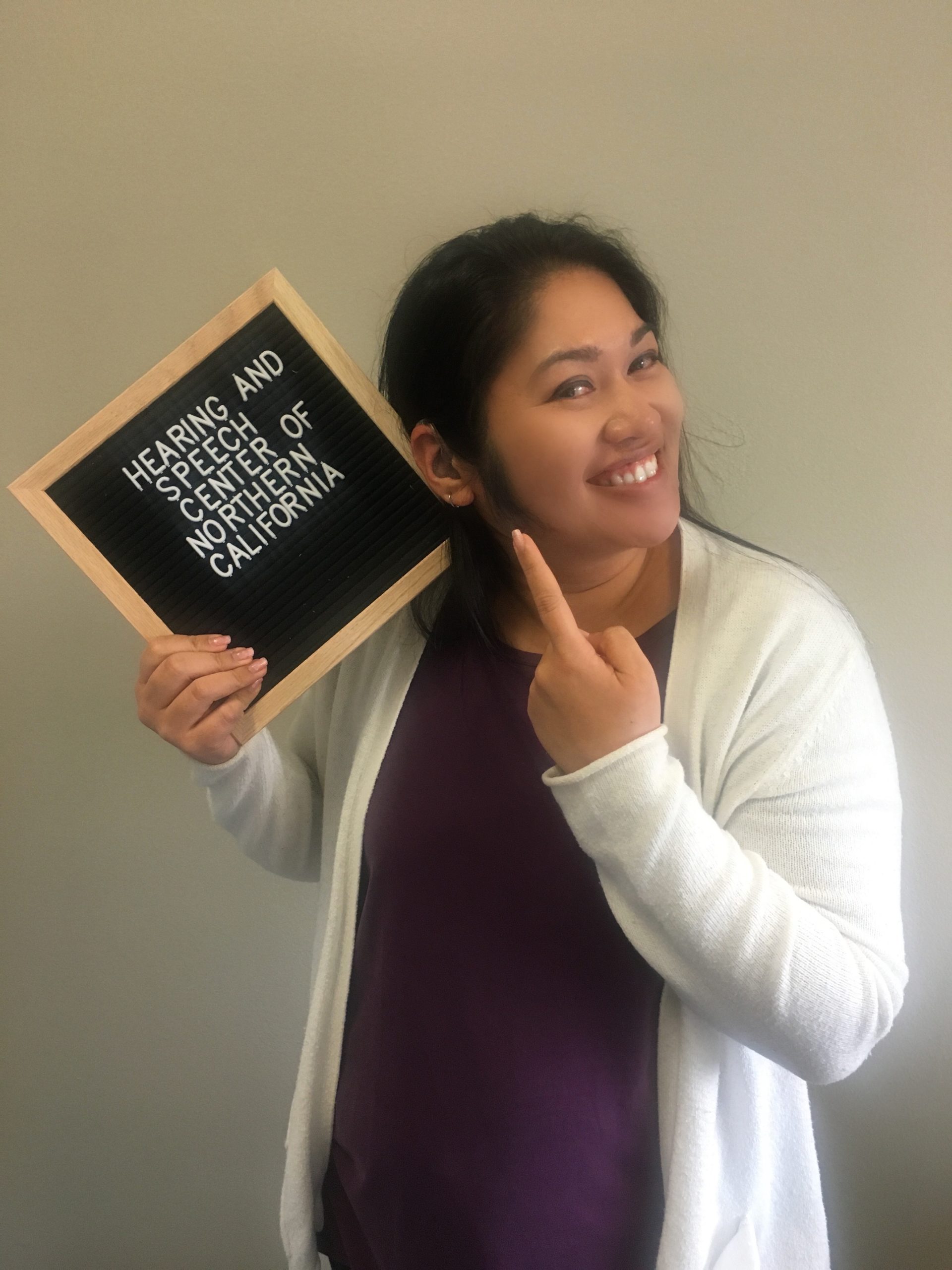Exercise Your Ears: Q&A with Dr. Kate Favor
Exercise Your Ears! Q&A with Dr. Kate Favor:
 Even if you’re home alone, there’s ways to keep your ears working and improving on your listening skills. During this period of self-quarantine we have an opportunity to practice those skills through apps and the new ways we are going about our daily lives such as video calls and online meetings. To chat about the importance of keeping our ears active we sat down with Dr. Kate Favor, virtually of course, to chat about some of the ways she’s exercising her ears and communicating with friends and family. Dr. Favor has been with the Center since 2013 and is a proud hearing aid user and advocate for DHH individuals.
Even if you’re home alone, there’s ways to keep your ears working and improving on your listening skills. During this period of self-quarantine we have an opportunity to practice those skills through apps and the new ways we are going about our daily lives such as video calls and online meetings. To chat about the importance of keeping our ears active we sat down with Dr. Kate Favor, virtually of course, to chat about some of the ways she’s exercising her ears and communicating with friends and family. Dr. Favor has been with the Center since 2013 and is a proud hearing aid user and advocate for DHH individuals.
HSCNC: Why do audiologists keep saying this is a great time for me to work on my listening skills?
Dr. Favor: If you don’t use it, you lose it! Continuing to listen will strengthen the pathway between the ears and the brain. During this shelter in place, we are limited in our in-person communications for safety reasons, but that doesn’t mean communication stops. Our conversations are now occurring via phone calls, video calls, texting, or emailing instead of in person. As challenging as it may be during this time, it would be best to avoid complete social isolation, which may be easy to do if you live alone. For people with hearing loss, we are now relying on more visual inputs than auditory input. Individuals with hearing loss need to engage their listening skills by speaking with friends and family. There are a lot of apps which can help you communicate with your loved ones, even when hearing on the phone or video chat is hard. Check out our previous post here for a great list.
HSCNC: Suggestions to your patients to keep working their hearing even if they’re alone?
Dr. Favor: There are different ways to keep working your hearing when you are alone. You could implement some aural rehabilitation apps or services such as Starkey’s HearCoach, Neurotone’s Listening and Communication Enhancement (LACE), or clEAR. If you like to read, consider utilizing audio-books or apps! Don’t like listening to books but like listening to music? You could listen to your own music library or access a variety to music services. There are many websites and services that are offering free subscriptions for a limited time.
HSCNC: We’re all definitely watching a bit more TV than before, but don’t necessarily want our neighbors to listen along with us! Do you have suggestions for people struggling to hear their TV?
Dr. Kate Favor: If you’re struggling to hear your television after already adjusting the volume on your hearing aid or television, start by utilizing the closed captions. It seems like a simple fix, but it can help you catch what your ears might miss. If you’re still struggling consider getting a TV adapter. Each hearing aid manufacturer has their own specific TV adapter/accessory which allows the TV audio output to be directed to the your hearing aids. If videos are watched mostly from a smartphone or computer, there are intermediary devices from each manufacturer that would transmit the sound to the hearing aids. Most hearing aids now have Bluetooth technology which can help turn them into wireless earphones. If you have at least an iPhone 5 or newer, it’s possible to connect directly to your hearing aids. For Android users, you may need an intermediary device to transmit the sound directly to the hearing aids. If you’re interested in getting a new accessory, you can give us a call or send your audiologist an email to determine if your current hearing aids have Bluetooth technology or what compatible accessories will work with your hearing aids.
HSCNC: Any apps you recommend for your patients? Adults or kiddos!
Dr. Favor: HearCoach, AVA, Google Translate, SonicCloud, Otter, Zoom, Audible or other audio-books! Anything that will help you keep your ears active and communicate with loved ones. Because of COVID-19 a lot more apps are either extending free trial periods or offering deals, so this is a great time to test them out and find one you’ll use even when life gets back to its usual flow.
Here’s some links from another hard-of-hearing audiologist, Tina Childress, who has tested out tons of apps, on both the iOS or Android platforms.
Android Edition
https://docs.google.com/spreadsheets/d/162LobVdSIS8Xyb2CGrLVmi7BACpxVz1czrvAb-Zh91A/edit#gid=0
iOS Edition
https://docs.google.com/spreadsheets/d/1jBcMgGGKgUY2myJz8749IIZIWFwjlxBUjcy35SnahPo/edit#gid=0
